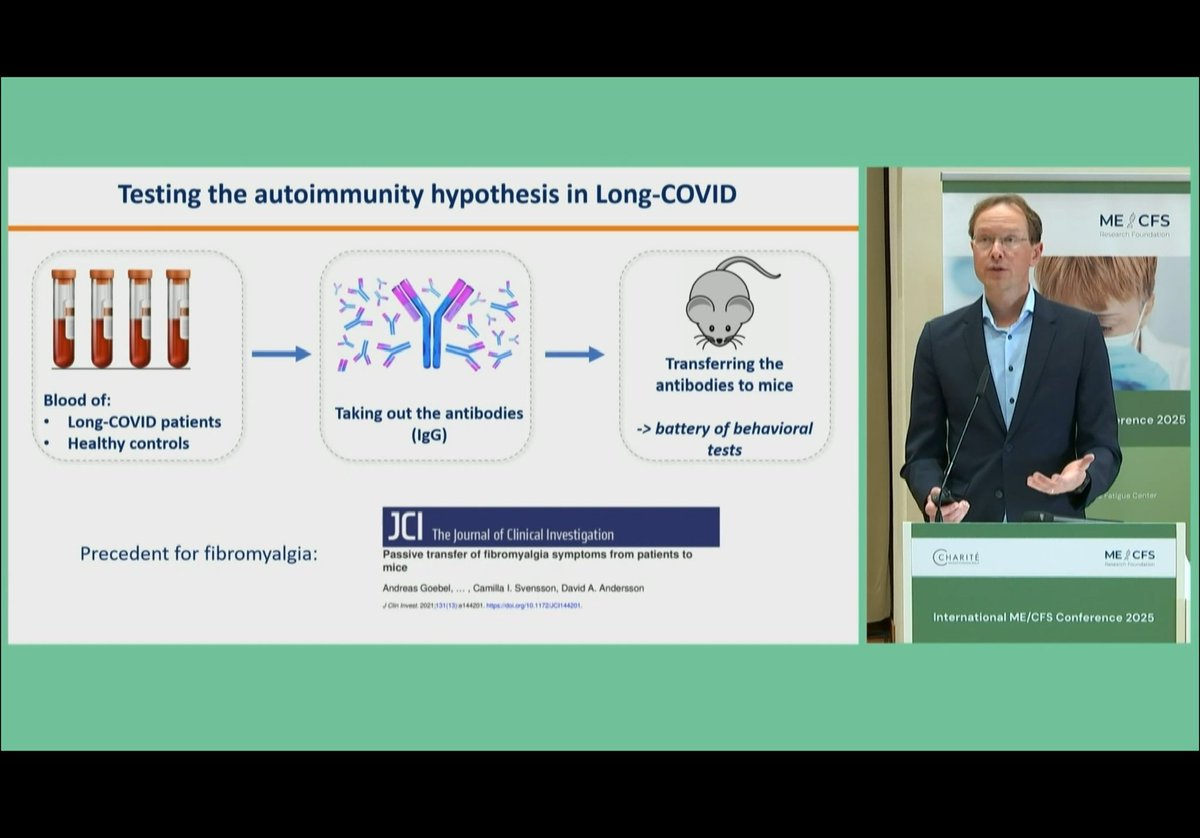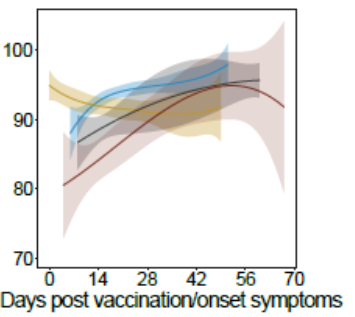A strong indication for #autoimmunity in #longcovid: transfer of antibodies of patients induces symptoms in mice. Check out our latest preprint @biorxivpreprint: 1/11biorxiv.org/content/10.110…
Before we start, beware that this is a preprint, and still needs to undergo peer review. Yet, since we believe these findings could be (very) relevant, let’s already have a look at what we found. 2/11
Autoimmunity has long been one of the main suspects of Long-COVID: COVID-19 increases the risk of autoimmunity (), it affects more females than males, and in Long-COVID patients auto-antibodies have been found against all kinds of self-antigens. 3/11pubmed.ncbi.nlm.nih.gov/37046064/
Despite this strong association, the big question remained: is autoimmunity a CAUSE or CONSEQUENCE in Long-COVID? So we decided to put this to the test: we purified antibodies from patient blood, transferred these to mice, and tested whether mice would develop symptoms. 4/11 

Strikingly, transfer of IgG antibodies of Long-COVID patients strongly induced symptoms in mice! Most pronounced was the induction of pain, measured with e.g. a Von Frey test (Long-COVID IgG in green, lower indicates more pain; log scale). 5/11 

Since Long-COVID is a very heterogeneous disease (different symptoms, severity, etc.) we also tried to divide the patients into separate groups. With a little help from proteomics (proteins in blood) we identified three groups (color coded red/grey/yellow). 6/11 

Interestingly, antibodies from different patient-groups induced different symptoms in mice! Group-yellow IgG immediately induced pain symptoms, group-red induced delayed symptoms. Remarkable: group-grey IgG induced no pain, but was the only group to induce immobility. 7/11 

So in short: 1. IgG antibodies from Long-COVID patients induce symptoms in mice, indicating autoimmunity plays a causal role in this disease. 2. Antibodies from different subgroups induce distinct symptoms, indicating the presence of multiple (groups of) auto-antibodies. 8/11
For a 10 minute presentation of this work, check out this presentation from December 2023 from one of the first authors of our preprint, @oliverch77: 9/11
Another cool thing: our findings seem to have been independently validated by the @PutrinoLab, who recently showed similar preliminary data on this scientific conference (May 2024): 10/11
Big thanks to our funders @StLongCOVID and @ZonMw for making this research possible! Hats off to the team: @oliverch77, Brent Appelman, @HLDMWillemen @Eijkelkamp_N and so many more. And a special thanks to all involved patients, definitely including @Molbaas 😀. 11/11
• • •
Missing some Tweet in this thread? You can try to
force a refresh








